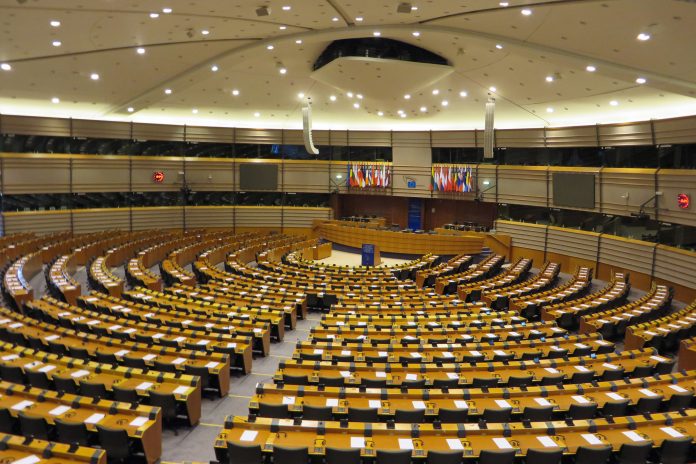The Special Committee on Artificial Intelligence (AIDA) discussed ways for Europe to build an international AI governance based on values, within a strong transatlantic partnership.
“As we prepare, at the European level, multiple and complementary legislation setting the rules of the digital world, we need to start promoting our views, values, and rules around the world” said AIDA committee Chair Dragoș Tudorache (Renew, RO). “For the EU to become a global geopolitical actor, we need to adapt our foreign policy and external action to the digital future, and a key component to this is strengthening the digital transatlantic partnership. In cybersecurity and defence, interoperability with NATO and our strategic allies is of crucial importance for building our resilience, for reducing our vulnerabilities, and providing security for our citizens. The EU and the U.S. are both founded on the values of freedom, human rights, democracy, and the rule of law. These values need to serve as cornerstones for the digital future” he added. MEPs explored opportunities and obstacles to greater transatlantic cooperation on AI, by holding two panel discussions bringing together AI leaders from across government, industry, and international civil society. The hearing was organised jointly with the Foreign Affairs committee and the sub-committee on Security and Defence. The first panel on Monday 1 March focused on AI diplomacy and governance in a global setting, and featured representatives from the United Nations, the European External Action Service, the French Institute for Research in Digital Science and Technology (INRIA), the Center for the Fourth Industrial Revolution in Colombia (C4IR.CO), and U.S. Congresswoman Robin Kelly (D, IL). The second panel on Thursday 4 March dealt with cybersecurity and defence aspects of AI, with speakers from NATO, the European Commission, Dutch Research Institute TNO, The Article 36 NGO, the U.S. National Security Commission on AI (NSCAI) and the International Panel on the Regulation of Autonomous Weapons (IPRAW).
How can the EU harness its regulatory leadership in the global race for AI? As the building blocks of AI raise important legal, political and regulatory issues also in the antitrust and fair taxation areas, the EU faces further challenges in ensuring policy coherence as it seeks to regulate the tech sector and digital markets in the decade ahead. On 2 December 2020, the European Commission and the High Representative of the Union for Foreign Affairs and Security Policy issued a joint communication on a new EU-US agenda for global change. One of the four focus areas – trade and tech – sets out a recommendation that the EU and US enter into a ‘Transatlantic AI Agreement’ in a greater drive to strengthen multilateralism and regulatory convergence in the digital economy. Building on the shared value of human-centric AI, the agreement would set a blueprint for global AI standards that is fundamentally values-driven and consistent with the framework of existing legal norms set out in international law. At the European Council meeting of 10-11 December, the Council held a discussion on EU-US relations, highlighting the importance of a strong strategic transatlantic partnership based on common interests and shared values. In the Council Conclusions, Member States expressed readiness to hold talks on these and other shared priorities with the new U.S. administration.

